I’ll never forget the first time I saw it.
It was a Friday. I had the day off from my “day job” as an engineer, and I was trading the markets during a once-in-a-generation crash.
I hadn’t learned my lesson about how financial media operates. I had CNBC up on my TV.
And there it was. A level of financial noise I couldn’t fathom.
The Octobox.
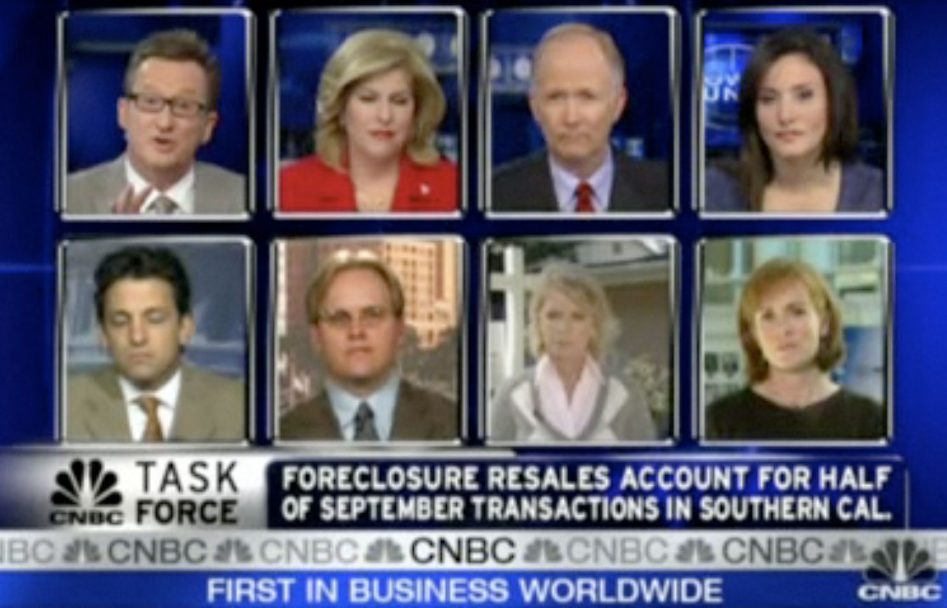

How to Safely “Load the Boat” for a Stock Market Bounce
Eight talking heads, all at the same time, trying to dissect the most recent piece of terrible news that hit the market.
Nobody got it right, and the fear truly was on everyone’s faces. It wasn’t just a bear market – it was a full blown credit crunch.
And I think we were a week or so away from a liquidity crisis, where people couldn’t access the capital in their money market accounts.
Of course, the Octobox never helped me in any way… until I discovered a different kind of signal.
Once we were on the other side of the crash, there would be a few times a year where the market would get a little scary… and they would dust off the old Octobox and let eight pundits duke it out about how terrible things were.
I found that if I noticed Octobox came out, the market would bottom just a few days later.
Placing a bet that the market will bottom is never an easy task. And today, unlike the Octobox, I’m going to give you some useful pointers.
How Markets Tank – Looking at the Stock and Option Markets
Around 2018, the market started to change the way it traded. More market participants were actively trading options as a way to get exposure to the market.
If you get enough option trades, they can easily overwhelm the rest of the market.
There were two big selloffs in 2018 that proved it:
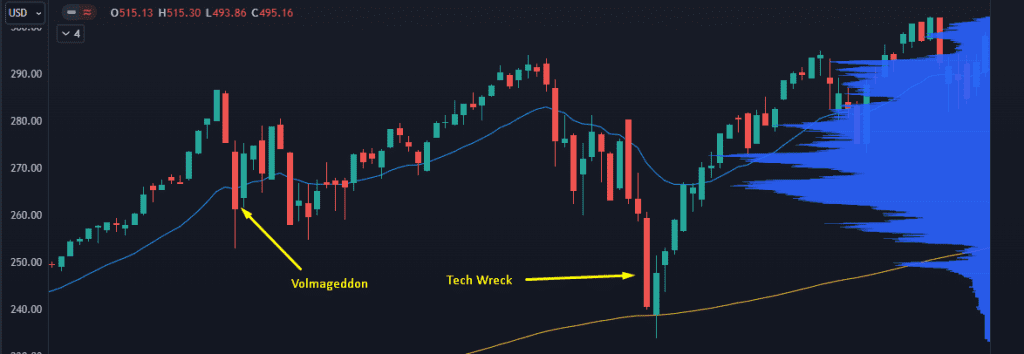

How to Safely “Load the Boat” for a Stock Market Bounce
There are a few dynamics with a big pullback:
Inventory gets stuck. The market trades in a range and gives new buyers false hope with a recent trend.
In this case– the AI revolution in the semiconductor space. That narrative started six months ago, and if you’re late to the party you will be left with the bill.
That’s exactly what happened in the Nasdaq 100 recently:
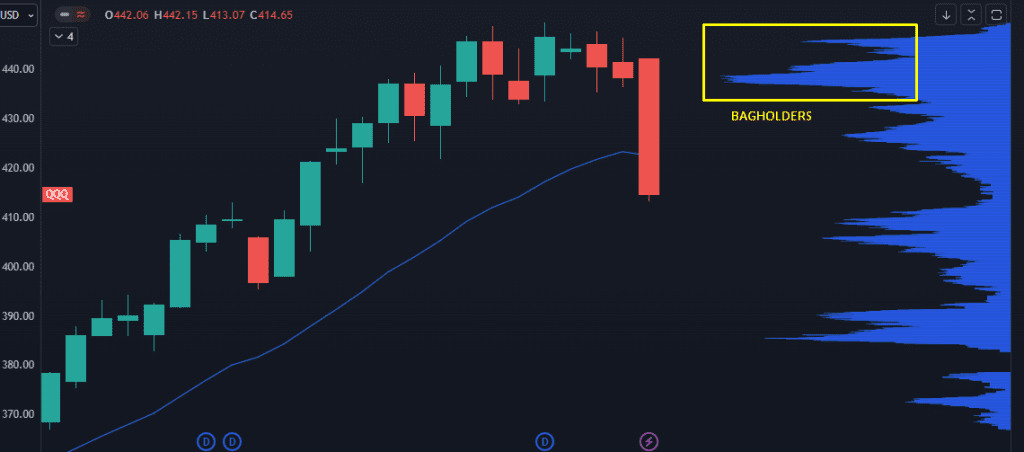

How to Safely “Load the Boat” for a Stock Market Bounce
Once you get enough new buyers at bad prices, then the market can start to weaken.
This is where the option players step in. When you have a “boring” market, there are traders who love to step in and sell volatility. They can do this by selling puts, going long SVXY, or some other combination.
When we see a liquidity break, all of the positioning starts to panic– both the stock and option holders. You’ll see a rush for puts and protection, leading to a spike in the VIX:
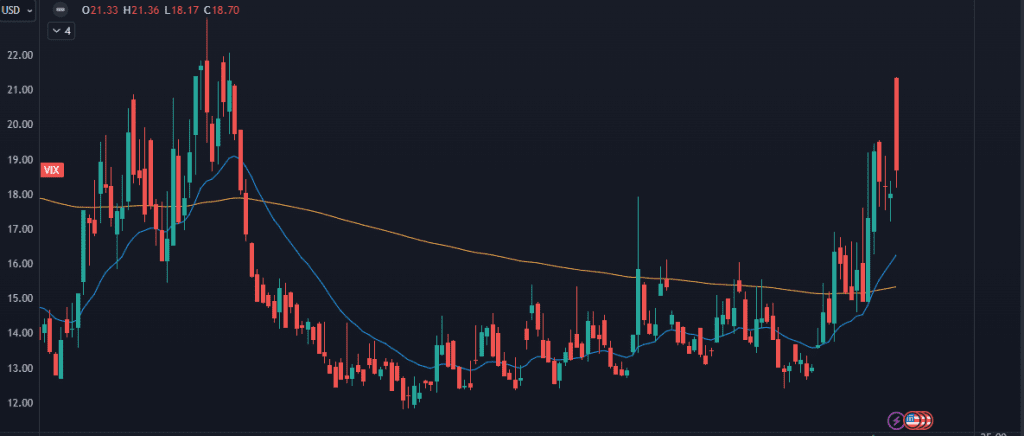

How to Safely “Load the Boat” for a Stock Market Bounce
As the market sells off, option prices go up as the price for insurance rises.
This forces a second cascade of sellers who have to reduce their risk as volatility just explodes.
This is where it gets fun.
How to Trade Out of a Market Selloff
There’s one other interesting options trade that starts to happen.
As the market sells off, you will also see calls starting to be sold against assets. These are institutions and larger market participants who want to try and pay for some of their protection by selling calls.
You also see any kind of speculation to the upside go away, which leads to a drop in the buyers of the market.
That means calls start to get cheap. Dirt cheap.
So cheap that you don’t even have to nail the exact bottom, because they are so underpriced any small bounce will be worth a solid amount.
Here’s the catch though: the “sweet spot” for the best options to buy out of a bottom won’t be found on short term options.
There’s too many players at those distorting prices, and you want to hold on for a longer timeframe.
You also want to avoid “at the money” options, because that’s not where you get the best bang for your buck.
If you’re trying to play for a bounce in the market, my focus is always on “out of the money” options that are between 45 and 75 days to expiration.
Let’s take an example on the SPY, which I think is close to a short term bottom, although I’m not certain this will be the lowest price we trade for the rest of the year.
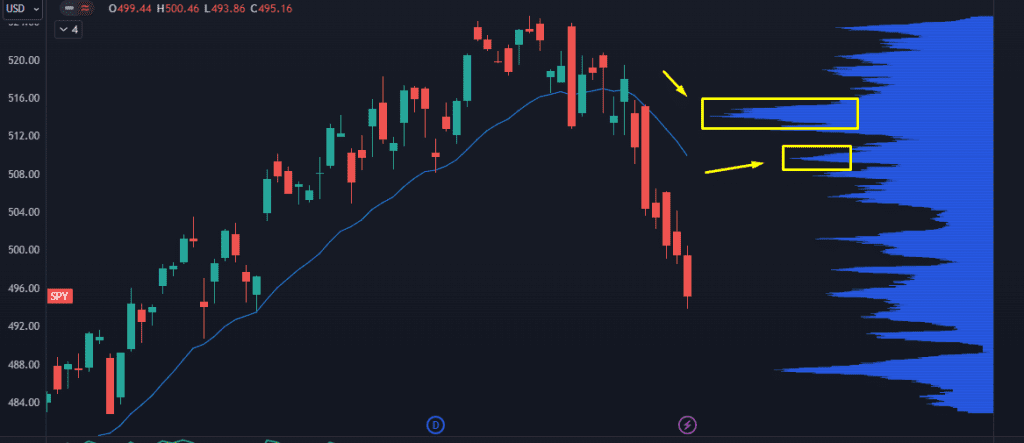

Those two zones I’ve marked are where the liquidity is. These liquidity zones often act as magnets. If the S&P 500 were to bounce, I would expect at least a retest of 509, and even a stretch back into the big zone up at 514.
So instead of risking more capital and owning less convexity by purchasing the 495 calls, I would be targeting the 510 calls and trading around them.
This can only work if you know where the market is going to run into, and the only way I’ve found to do that is to use my Trading Roadmap, just like the one I showed in the chart above.
I’ve also got a full hour-long training video on the Roadmap and how we use it to find serious market opportunities – you can watch it completely free right here.
Original Post Can be Found HERE







